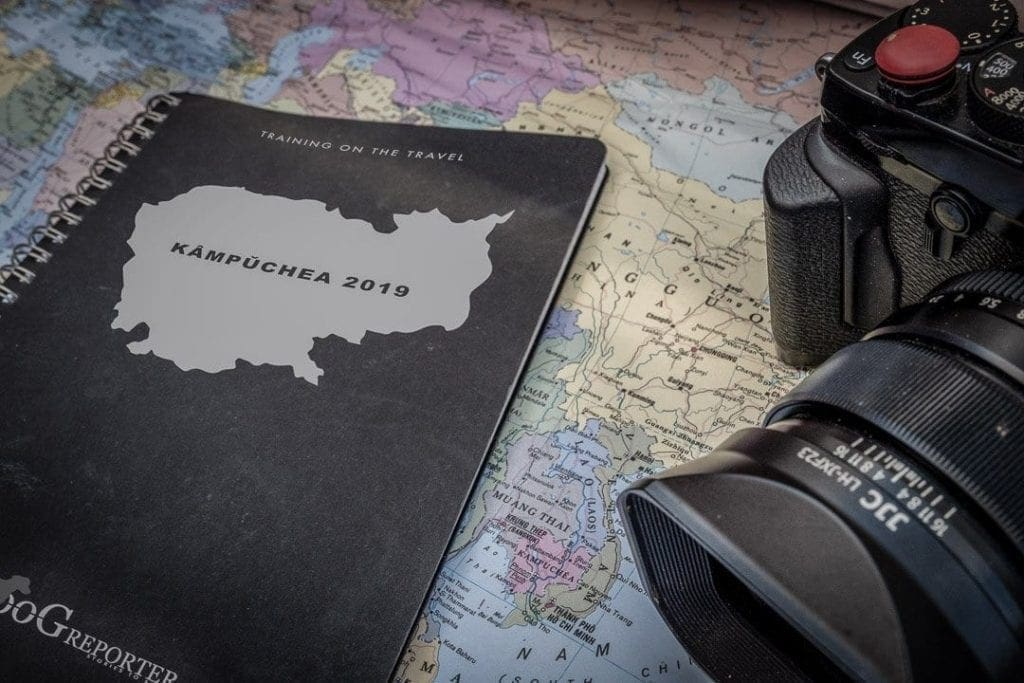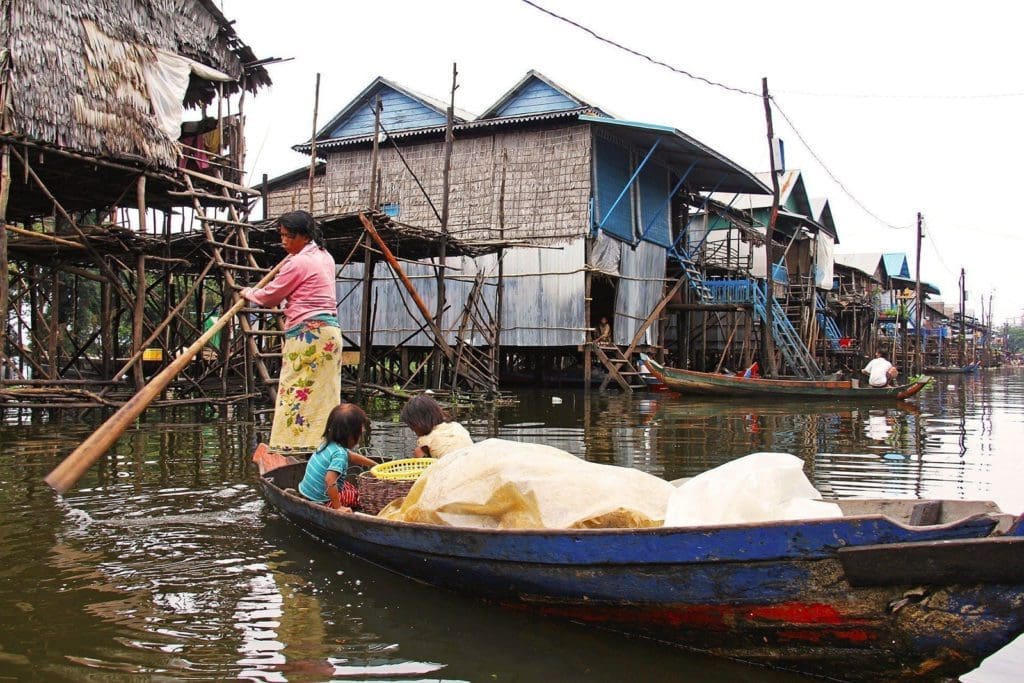Khmer language: Preăh Réachéanachâkr Kâmpŭchea (ព្រះរាជាណាចក្រ កម្ព��ជា), or the“Land of Kâmpŭchea.” is known by the name of Cambodia as early as the first half of the 1500s as recorded in Antonio Pigafetta’s diaries in the“Report of the First Voyage Around the World” written during the first circumnavigation of the globe made with Ferdinand Magellan.
A country in eastern Indochina, Cambodia is marked by the Mê Kông River(Tonlé Thom or Great River), which comes from as far away as Tibet, and the great Tonlé Sap Lake, which is also the country’s main fishing resource.
The Land of Kâmpŭchea owes its royalty to theKhmer Empire, which has left us, in addition to the fascinating capital Phnom Penh, some of the world’s most unique sites such as, for example, the Temples of Angkor.
The population, predominantly animist, dedicated to the cult of the dead and ancestors, follow Theravada Buddhism. With 96% of the inhabitants practising it, this is considered the state religion. A small Muslim community, Cham (2%), also resides in the country, while Christianity is widespread in some mountain tribes.
It is a workshop but it is not: it is about learning a trade in the field.
Cambodia 2019 is a real training on the travel where photojournalist Gabriele Orlini brings to bear his experience as a professional to teach those who want to enter this profession some basic things. One example: do you know where to change money in Asia?
Cambodia 2019 is designed for a team of up to four people.
Immersive and strenuous field work, getting hands and feet dirty, designed and developed for those photographers and reporters with a desire to increase their experience, training and expertise in documentary photography, reportage, photojournalism, storytelling.
Each participant will be assigned a topic to develop: a real assignment to take home. From the search for information to the planning of the work to its realisation. The aim is to acquire the processes and experiences of documentary photography under real-life conditions. Little theory, therefore, but a lot of experience. Because certain things cannot be learned unless you try them out with someone who already knows them.
From the capital Phnom Penh, with a detour to Kompong Luong, we will spend the night on Tonlé Sap Lake, seeking hospitality among the local people who live in stilts on the waters of the lake.
At the end of the monsoon season that makes everything more real, walking in the history of the country and the people who live there, in their homes, in their villages, off any tourist route we will go east to Kompong Chan, where the largest Muslim community in the country lives, amidst the ruins of the French colonial past.
Stopping near Kratie and Kho Trong Island on the Mekong River, traveling through immense rice paddies and sugarcane plantations, we will arrive in the rolling hills of Mondulkiri, the wildest land in Cambodia.
We will consume our time with the proud Bunong, an animist people who still worship their ancestors, until we cross the jungle together with the elephants, who have a home here along with the Mahot, their guardians.

Each participant, following their work, will come into direct contact with local communities and experience first-hand the situations and daily life that they will then go on to document. There will be no discounts for anyone: everyone must put themselves on the line to bring home the result.
This a unique opportunity to work in the field, with all the difficulties and necessities that a reportage job has: from managing contacts on site to travelling, solving unforeseen problems, and producing material with often very tight deadlines.
And what better opportunity to put yourself to the test than this, with the security of having a guide at your disposal who has not only experienced these situations but can also master them and provide valuable tips for dealing with them even when you are out in the field, on your own.
To close the day, there will be editing sessions of the work done so far, with ample time for discussion and debate every evening- and sometimes at night. In addition, the schedule for the following day will be determined, including any changes to the travel route.
The constant guidance of Gabriele Orlini will ensure the right direction in project development and will be an ongoing support for each participant during fieldwork.
If you want an all-inclusive trip or a workshop where you are told how good you are, Cambodia 2019 is not for you. Here we create people aware of their capabilities, future professionals, who know how to bring out unimaginable resources but also know when it is time to step aside. Not superheroes but witnesses to stories.

